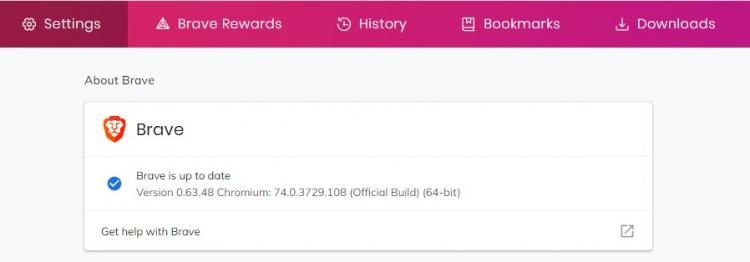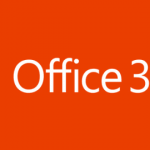This post was most recently updated on March 28th, 2023.
5 min read.I’m trying out new, more long-form content on this blog – tell me what you think about it in the comments section below! This article explains one of the only cryptocurrency initiatives I find to be kind of level-headed – Basic Attention Token – and the browser that’s pretty tightly coupled with it, Brave.
Note: If you just want to skip all the banter and download the hecking browser, click this.
Preface
As far as different cryptocurrencies go, there have been quite a few downs and lows in the last few years. The crazy bull market that saw tulip mania -like rush to invest into anything that was called an ICO (short for Initial Coin Offering), mostly by laymen who understand much about cryptocurrencies, but are greedy enough to chase a quick buck and not educated enough to vet the projects. I don’t intend to delve deeper into behavioural science or economics, but I admit to being disgusted enough by the trend that I blocked dozens of “crypto-hustlers” and members of #HODLGANG.
Anyway, let’s not get political – I find cryptocurrencies fascinating, but not many of the projects have seemed sustainable and/or convenient enough to spark my interest. My small positions in a few major currencies shouldn’t be enough to make me too biased – but my stance has been, that most bandwagons in this caravan have been just headed off the cliff instead of rocketing to the moon.
One big reason for my disinterest has also been the Finnish tax law, which seems to hate cryptocurrencies, making owning and trading them legally a pain… But let’s not get there either – that’s another political tussle waiting to happen!
Are you starting to see a pattern here? Because this is something unfortunate that I’ve noticed about cryptocurrencies; even if we completely forget about all the opportunistic self-seekers, a lot of the topics in the crypto space are highly divisive, extreme and non-conformational. While this does provide for some extremely interesting debates and very entertaining podcasts, it’s not that constructive. It doesn’t build up… Anything. Or anyone.
That’s why I’ve decided to step away from the debates about the principles and politics around the crypto space and focus purely on practical values.
And this brings me to the actual topic of this post (took me a while, eh?): The Brave browser, and BAT, the Basic Attention Token.
What’s BAT?
BAT is a rare example of a cryptocurrency project that makes sense. It’s not the only one (not even close), but it does have an untypically high number of redeeming qualities – and I’m going to quickly go through them here.
What’s BAT then? It’s an open-source, decentralized ad exchange platform built on the Ethereum platform. The token aims to value and reward user attention within the platform. In short: Advertisers pay BAT to website publishers for the attention of users.
The BAT ecosystem includes Brave, an open-source, privacy-centred browser designed to block trackers and malware. It’s built on Chromium, the open-source engine Google Chrome is built on as well. However, while Chrome is built to gather as much info about the users as possible for advertising purposes (like most Google products), Brave is built on privacy and a sustainable ad business model, where consumers have an active role as well, in mind. This is in sharp contrast to some other platforms out there, to whom the consumer is just cattle.
It leverages blockchain technology to anonymously track user attention securely and rewards publishers accordingly. In the end, the project seeks to address fraud and opaqueness in digital advertising – while making advertising commercially viable for all parties.
Brave vs Chrome (et al)
What’s Brave like to use?
The browser is sleek, relatively fast, and has a great ad blocker built-in (they did that before Google did, and do it far, far better). While Google hides a few competitors to cement its status even more, Brave removes everything equally – and recently, Google is removing the APIs most adblocker extensions use, so the difference between the browser’s ad-blocking capabilities seems to just grow.
Well, that’s all cool, but none of that is that interesting, admittedly. There needs to be something cooler to make the browser a viable option, right? Some useful gimmick that sets it apart from other Chromium forks?
Well, luckily there is!
What’s interesting about Brave is the built-in tipping system: based on the time you spend on the websites and your manual actions, you can tip content creators and websites using the built-in cryptocurrency, BAT.

While the browser is a pleasure to use in general (it has the pros of Google Chrome, plus better performance, BATs, and ad-blocking), the tipping is very easy and it’s a nice addition as well.
Using BATs is easy and the onboarding has been done well – you do need to create a local cryptocurrency wallet, but the browser will guide you through the process.
I also signed up as a publisher – another straightforward process – to receive tips from people accessing my site. And it works: while there aren’t that many Brave users yet, the ones that do use the browser seem to tip liberally!
That all said, the biggest bonus to the browser is the fact it’s (fairly) independent from other vendors. Google already rules a big enough share of the internet, so we don’t need them snooping on us any more than necessary.
Brave’s performance is impressive
How well does the browser fare against competitors, then? Well, see a few test scores below…

Before getting started, I read up on other people’s experiences. Sites like Verge seem to confirm my initial thoughts: even if they’re built with the same core, the implementations are different enough for there to be performance differences between Brave and Chrome:
Brave is tangibly faster than Chrome, and because it otherwise behaves like Chrome, it’s the fastest browser for my use. – – Chrome and Vivaldi are similar, though Vivaldi takes longer to launch, which, in my case, is important because I often quit my browser to get rid of a big pile of tabs and then restart it afresh. Firefox continues to feel like the slowest option from the bunch, and it performs worst on benchmarks – – .
Verge
I then tested performance with speed-battle.com. To be fair, the results varied greatly, so I’d call this fairly unreliable – but in tests performed back-to-back, Brave never got worse results than Chrome, rather besting it with the overall score being 30-300 points higher (depending on the run, a 5-30 % difference).
Yeah, quite a range…

Compare this with the latest Chrome:

Please note, that tests like this aren’t going to be very conclusive. Anyway, in practice and daily use, Brave is slick. I guess that’s what matters.
Try Brave?
Brave is pretty cool – and if you want to try it out, you can download it from here: https://brave.com/kos048
If you download the browser from the link above and actually start using it, I get a few BATs as a referral bonus. Great way to support the site as well – as the traffic has multiplied within the last few months, my hosting is becoming more expensive as well. So, thank you for considering it! :)



